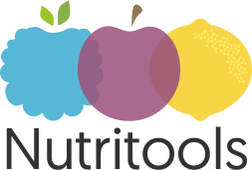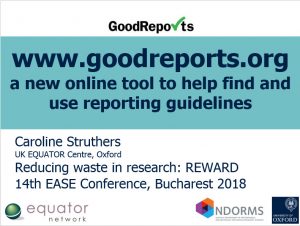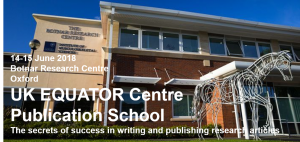 Measuring diet is challenging due to the complexity of food intake and the day-to-day variation between and within study participants. Therefore strategies to help researchers select suitable dietary assessment tools (DATs) are required.
Measuring diet is challenging due to the complexity of food intake and the day-to-day variation between and within study participants. Therefore strategies to help researchers select suitable dietary assessment tools (DATs) are required.
To address this issue the Nutritools website details Best Practice Guidelines for dietary assessment in health research in an interactive form.
The Best Practice Guidelines (BPG) are targeted towards Public Health researchers, Nutritionists, clinicians and epidemiologists. 43 guidelines were developed through the Delphi method. These guidelines were consolidated using 131 invited experts view from North America, Europe, Asia, and Australia. A total of 57 experts completed both Delphi rounds. The BPG are grouped in 4 key stages: Define, Investigate, Evaluate, and Think Through. For further information on the 8 sub-sections of the BPG please refer to the published paper in BMC Medicine.
Key features of the Nutritools website are:
The Best Practice Guidelines assist researchers in selecting the most appropriate Dietary Assessment Tools for their research.
The interactive Tool Library provides access to validated tools identified through a review of systematic reviews.
Visualisation plots allows you to compare the tools’ statistical validation data through bubble charts and summary plots.
The Food Questionnaire Creator (FQC) allows the creation and development of new food questionnaires or use of existing validated questionnaires converted for online use.
The DIET@NET partnership also complements the STROBE-nut reporting guidelines for reporting dietary studies in epidemiology as previously reported.
If you would like your validated tool to appear in the tool library of the Nutritools website please contact Dr Marisol Warthon-Medina, DIET@NET Project Manager, at m.warthonmedina@leeds.ac.uk or the Nutritools team at nutritools@leeds.ac.uk
For additional information regarding the BPG and the Nutritools website please contact: Professor Janet Cade J.E.Cade@leeds.ac.uk
The paper DIET@NET: Best practice guidelines for dietary assessment in health research was published in BMC Medicine 15 November 2017
Authors include: Janet E. Cade, Marisol Warthon-Medina, Salwa Albar, Nisreen A. Alwan, Andrew Ness, Mark Roe, Petra A. Wark, Katharine Greathead, Victoria J. Burley, Paul Finglas, Laura Johnson, Polly Page, Katharine Roberts, Toni Steer, Jozef Hooson, Darren C. Greenwood and Sian Robinson
Funding was provided by the Medical Research Council (MR/L02019X/1).
Feedback from users
The website looks great and easy to use and such a resource was long overdue.
Dr Angeliki Papadaki, Senior Lecturer in Nutrition, School for Policy Studies, University of Bristol.
I think that it is an excellent site and could be very useful to people wishing to conduct dietary surveys. It is very intuitive to navigate
Dr Helen Moore, Knowledge Exchange Manager (EPSRC IAA) in the Research and Innovation Services, Durham University.
Nutritools is an exciting and very worthwhile initiative
Associate Professor Anne-Louise Heath in the Department of Human Nutrition at the University of Otago, New Zealand.
Nutritools
Nutritools was developed by the DIETary Assessment Tools NETwork (DIET@NET) — a partnership funded by the Medical Research Council.
The partnership brings together experts from UK universities and institutions: University of Leeds, MRC Lifecourse Epidemiology Unit, Southampton, University of Southampton, University of Bristol, Coventry University, Imperial College London, MRC Elsie Widdowson Laboratory, Cambridge, University of Oxford and Quadram Institute Bioscience and aims to improve the quality, consistency and comparability of dietary data collected in health research. www.nutritools.org
@Nutritools_org | nutritools@leeds.ac.uk


 We are delighted to announce the launch of a new open-access online course
We are delighted to announce the launch of a new open-access online course  Main Seminar Room,
Main Seminar Room,  In September 2017 I was lucky enough to represent EQUATOR at a round table discussion during the LAVA-ESLAV-ECLAM conference on Reproducibility of Animal Studies in Edinburgh. All attendees were invited to say a few words about initiatives and achievements of their organisations in improving reporting, and how they could have a positive impact on transparency and reproducibility in animal studies. The group subsequently had a
In September 2017 I was lucky enough to represent EQUATOR at a round table discussion during the LAVA-ESLAV-ECLAM conference on Reproducibility of Animal Studies in Edinburgh. All attendees were invited to say a few words about initiatives and achievements of their organisations in improving reporting, and how they could have a positive impact on transparency and reproducibility in animal studies. The group subsequently had a  One of the EQUATOR projects I mentioned was our “
One of the EQUATOR projects I mentioned was our “
 This course covers all you need to know to plan for publication and write up your health-related research study. It focuses on the use of reporting guidelines such as
This course covers all you need to know to plan for publication and write up your health-related research study. It focuses on the use of reporting guidelines such as